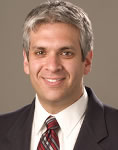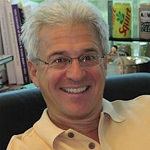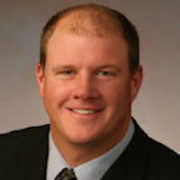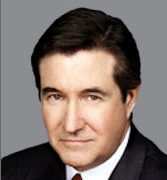James Gilmore
James Gilmore inspires audiences to see how businesses can create value by embracing theater as an operating model to stage unique experiences that, ultimately, transform those who participate in them. His powerful visual presentation challenges his audiences by planting the seeds of change, challenging traditional business assumptions, and introducing new sets of questions and frameworks that drive companies to view themselves, and their role in today’s competitive world from a fresh perspective.
Gilmore works with teams to help them grasp the nature of the emerging Experience Economy and envision their role in it – whether it be staging experiences, guiding transformations, or mass customizing any economic offering. His topics include Alliances/Partnering, Business Leaders, Strategic Planning, Customer Service, and Marketing, and addresses these and other issues at professional society and trade association conferences, as well as executive education programs of individual companies. He is also a Certified Trainer in Lateral Thinking Techniques of Dr. Edward de Bono.
An alumnus of Procter & Gamble. Gilmore co-founded Strategic Horizons LLP with Joe Pine, Gilmore’s passion for lateral thinking and unrelenting energy are touchstones for helping companies uncover the next truly big idea. His longest-standing client, Whirlpool, has relied on him for these kinds of ideas since the late 1980’s. Gilmore has now turned his attention to the next phase in the maturing Experience Economy — how in a world filled with ever more mediated and staged experiences, an increasingly unreal world, consumers are now making decisions based on how real they perceive various offerings to be. The outflow of those ideas is found in his book penned with co-author Joe Pine, Authenticity: What Consumers Really Want, published by Harvard Business School Press in late 2007. Jim Gilmore is an Adjunct Lecturer at The Graduate School of Business Administration at the University of Virginia, previously served as the Co-chair at the College of Family & Consumer Sciences at Iowa State University and has lectured at Case Western’s Weatherhead School of Management and Rochester Institute of Technology’s College of Applied Science and Technology.
TOPICS
Design What? How Goods, Services and Experiences Vary in Value-Creating Attributes
Jim Gilmore will share his perspective on excellent design, and how successful design necessarily varies for goods, services, and experiences. He will share his perspective on the design appeal of the (experience) enterprises that have won Pine & Gilmore’s Experience Stager of the Year (EXPY) award, but then present examples of the physical things (goods) and intangible activities (services) that he most admires for their design distinctions – and the principles he detects that create their appeal.
Everything You Need to Innovate Can Be Learned From Reality TV
One of the privileges for Jim Gilmore to result from the success of The Experience Economy is the number of entrepreneurs who contact him for feedback about the launch of their experience-based ventures. In this session, Gilmore will walk through ten start-up businesses that have approached him in recent years in search of advice and/or capital. Gilmore has secured permission from each new venture to share their basic business concept. The audience will then vote on which they think is most viable. In a shockingly unexpected finale to the talk, Gilmore will share his perspective on the role Reality TV played in conceptualizing each new enterprise!
Welcome to the Experience Economy
A fundamental shift is occurring in the very fabric of our economy. Today, what people desire are neither goods nor services, but something very different in kind, namely experiences that engage them in a personal and memorable way. Such experiences will increasingly command a premium fee and provide the basis for generating new revenue growth in for individual businesses and overall prosperity for both advanced and developing nations. In this provocative session, Gilmore will describe the nature of this emerging Experience Economy and outline principles for staging compelling experiences.
Get Real: Authenticity is the New Quality
In a world filled with ever more mediated and staged experiences ? an increasingly unreal world ? consumers are now making decisions based on how real they perceive various offerings to be. As a result, enterprises must become adept at rendering authenticity. Finding ways to tap into this emerging sensibility will become essential for success in the years and decades to come. This new challenge can be defined best as the management of the customer perception of authenticity. To be blunt: you must get real and not just claim you’re real.
Full Biography
As co-author of The Experience Economy: Work Is theatre & Every Business a Stage (Harvard Business School Press, 1999), James H. Gilmore literally wrote the book that spawned worldwide interest in experience design, customer experience management, and experiential marketing. Tom Peters rightly called The Experience Economy “a brilliant, absolutely original book.” Now published in eleven languages, the book continues to find new readers across myriad industries as businesses find their goods and services commoditized and customers increasingly spending their time and money on experiences—memorable events that engage them in an inherently personal way.
Gilmore’s most recent book, Authenticity: What Consumers Really Want (Harvard Business School Press, 2007), contends that businesses must learn to manage authenticity as a distinct business discipline. Indeed, in an ever more commercialized, intentionally staged, and technologically mediated world—an increasingly unreal world—people today want the real from the genuine, not the fake from some phony. Gilmore and his co-author Joe Pine, offer unparalleled insights concerning this important new topic. In its March 24, 2008 issue, Time magazine dubbed the core of Pine & Gilmore’s thinking, “synthetic authenticity,” and included it among its covers story featuring “10 Ideas That Are Changing the World”.
Gilmore is co-founder of Aurora, Ohio-based Strategic Horizons LLP. He has been described as “professional observer,” sought by enterprises around the globe for his expertise in conceiving and designing new ways of adding value to their economic offerings. He is a frequent keynote speaker, as well as workshop facilitator and executive coach; a number of professional societies, trade associations, and individual companies also engage Gilmore to help design their overall meetings and events. Recently, Gilmore has been accepted a three-year appointment as the Chief Experience Architect for the San Diego Convention & Visitors Bureau.
Gilmore’s ideas have been featured in numerous articles on business strategy and innovation for such publications as the Harvard Business Review, The Wall Street Journal, and Investors Business Daily, among others. He is also co-editor of Markets of One: Creating Customer-Unique Value through Mass Customization (Boston: Harvard Business School Press, 2000).
He began his career with Procter & Gamble and then spent over ten years consulting with Cleveland Consulting Associates and Computer Sciences Corporation, heading CSC Consulting’s process innovation practice before starting his own firm. Mr. Gilmore is currently an Adjunct Lecturer at the Darden School of Business at the University of Virginia. He previously served as the 2002-2003 Dean Helen LeBaron Hilton Endowed Co- chair at the College of Family & Consumer Sciences at Iowa State University. He is a graduate of the Wharton School of the University of Pennsylvania.
Expertise: Authors | BUSINESS | Entrepreneurs | Healthcare Medical Nursing Pharmaceutical | Motivation | SALES / MARKETING | Sales Strategy












